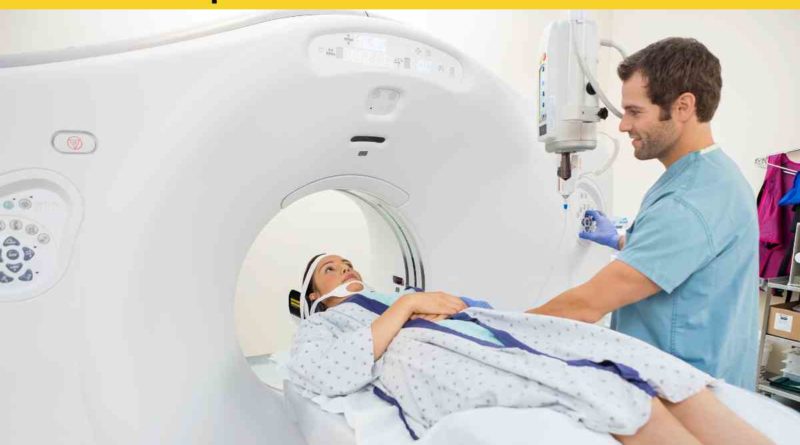How to Prepare Your Patient for a Bone Scan
How to Prepare Your Patient for a Bone Scan: Bone scans are a vital diagnostic tool used in medical imaging to detect abnormalities, fractures, and diseases in the skeletal system. As a nurse, it is essential to be well-versed in the preparation and care of patients undergoing a bone scan. In this article, we will guide you through the most important nursing intervention for preparing your patient for a bone scan. Join us as we explore the key steps and considerations to ensure a safe and successful bone scan procedure.
Understanding Bone Scans
A bone scan is a nuclear medicine imaging test that utilizes a small amount of radioactive material to evaluate the bones’ condition. The radioactive material, called a radiotracer, is injected into the patient’s bloodstream and accumulates in areas of increased metabolic activity within the bones. Specialized cameras capture the emitted radiation, creating images that help diagnose and assess various bone-related conditions.
The Role of Nursing in Bone Scan Preparation
As a nurse, your role in preparing patients for a bone scan is crucial. Your knowledge and expertise are vital in ensuring patient safety, comfort, and accurate scan results. By implementing the most important nursing intervention strategies, you can facilitate a smooth and successful bone scan procedure.
ALso Read Is Jason Aldean Dealing with Health Issues? Unveiling the Truth
Assessing Patient History and Condition
Before preparing the patient for a bone scan, it is essential to gather pertinent information about their medical history, current health status, and any pre-existing conditions. This assessment helps identify potential contraindications or precautions associated with the scan. Pay close attention to allergies, pregnancy status, recent surgeries, and other factors that may affect the administration of the radiotracer or the scanning process.
Educating the Patient
Clear and thorough patient education is vital in ensuring their understanding of the bone scan procedure and alleviating any anxieties or concerns. Explain the purpose of the scan, the injection of the radiotracer, and the importance of remaining still during the imaging process. Inform the patient about the minimal risks associated with the procedure and address any questions or apprehensions they may have.
Obtaining Informed Consent
Obtaining informed consent is a critical step in the preparation process. Ensure that the patient has been adequately informed about the purpose, benefits, potential risks, and alternatives of the bone scan. Document their consent appropriately, adhering to institutional policies and legal requirements.
Ensuring Proper Hydration
Hydration is an essential aspect of bone scan preparation. Adequate hydration helps facilitate the distribution of the radiotracer throughout the body, resulting in clearer and more accurate scan images. Encourage the patient to drink plenty of fluids in the hours leading up to the procedure, unless contraindicated due to their medical condition.
Follow-Us On NewUsaNews facebook
Addressing Medication Instructions
Certain medications may interfere with bone scan results or pose potential risks during the procedure. It is crucial to review the patient’s medication list and consult with the healthcare team to determine if any medications need to be temporarily withheld or adjusted prior to the scan. Follow institutional protocols and guidelines to ensure patient safety and accurate scan outcomes.
Assisting with Patient Preparation
Assist the patient in preparing for the bone scan procedure. This may involve ensuring the patient is appropriately dressed, providing privacy for changing into a hospital gown if necessary, and removing any metal objects or jewelry that could interfere with the scan. Positioning the patient comfortably on the scanning table and providing any necessary support or reassurance can also contribute to a positive patient experience.
Communicating with the Radiology Team
Maintaining effective communication with the radiology team is essential throughout the preparation process. Share relevant patient information, such as allergies, medical conditions, and medication adjustments, with the radiology staff to ensure the scan is performed safely and accurately. Collaboration between nursing and radiology professionals promotes optimal patient care and outcomes.
Conclusion
As a nurse, your role in preparing patients for a bone scan is instrumental in ensuring their safety, comfort, and accurate scan results. Through the most important nursing intervention strategies, such as assessing patient history, educating the patient, obtaining informed consent, ensuring proper hydration, addressing medication instructions, assisting with patient preparation, and maintaining effective communication with the radiology team, you can facilitate a successful bone scan procedure. By prioritizing patient care and following established protocols, you contribute to the overall well-being of your patients and support the diagnostic process in identifying bone-related conditions.
